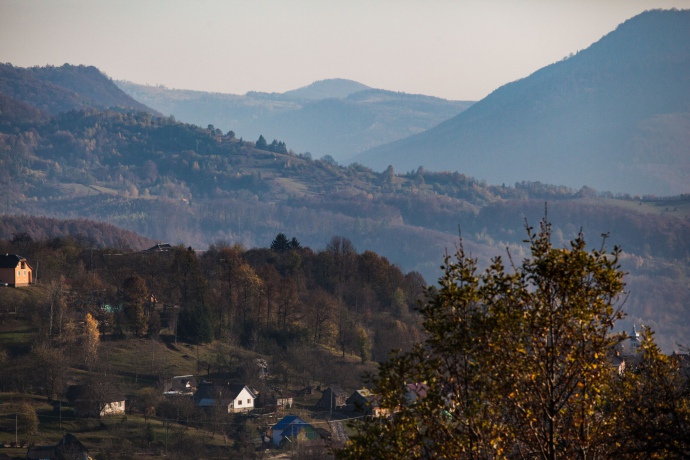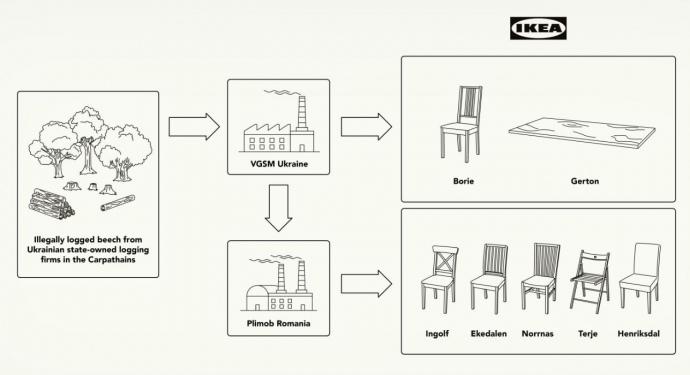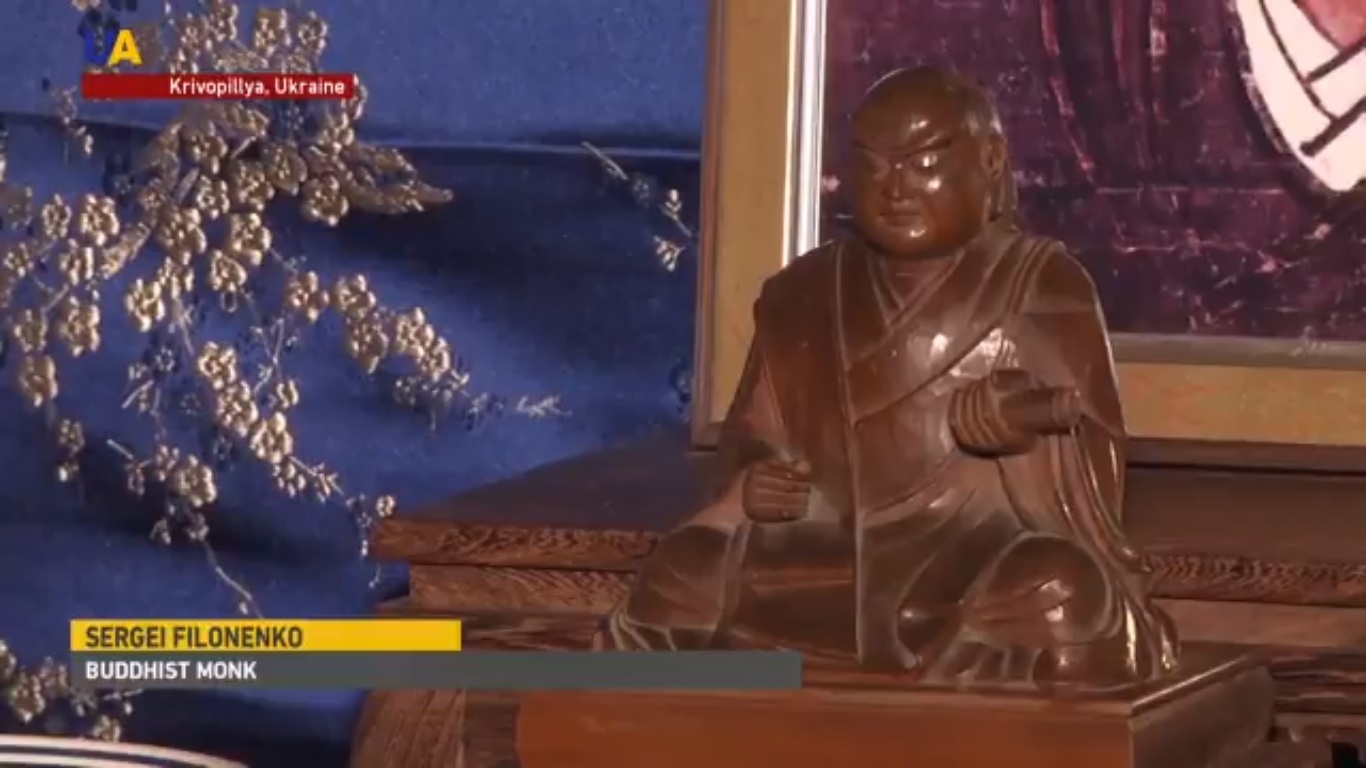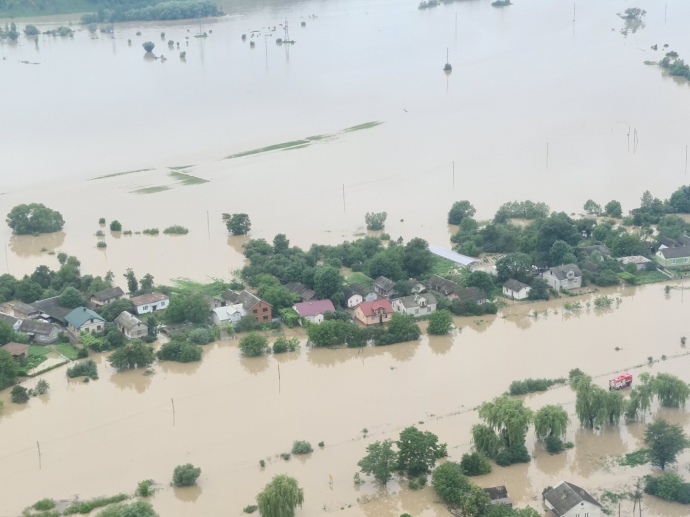One of the Swedish flat-pack furniture giant IKEA's bestsellers, the iconic folding, slatted Terje chair, is made from illegally logged timber from the Ukrainian Carpathian mountains, the British NGO Earthsight has revealed in a report which took 18 months to make.
According to the investigation, the beech for IKEA's most popular chairs is supplied by a forestry farm in the village of Velykyi Bychkiv in Ukraine's Zakarpattia Oblast. The State Ecological Inspectorate of Ukraine has already inspected this farm and confirmed that the forestry issued illegal licenses for "sanitary" clearcutting of more than 100 plots from April to June 2018. Permits to cut down healthy trees were issued on the pretext that they were sick.

This common trick in Ukraine allows logging to be carried out in much larger quantities than what is considered sustainable. In addition, Earthsight found evidence of other violations of the law during logging, in particular, clearcutting outside certain limits. Presenting a double threat and endangering the continent's biodiversity were the felling permits issued during the "silence period," when unique rare animals and birds in the region, such as the white-backed woodpecker, the European green woodpecker, three-toed woodpecker. and Eurasian lynx, were breeding.
The main procurer of the illegally felled beech is the furniture company VGSM. It is one of the largest Ukrainian suppliers to IKEA. Approximately 96% of all VGSM products are sold to the Swedish company. Freight documents indicate that VGSM sells raw beech, oak, and ash to an IKEA factory in Slovakia. Many products exported by VGSM are semi-finished pieces of furniture or processed beech lumber which is shipped to Romania. There they are processed by the Plimob company.
In an interview with local journalists, the director of VGSM explained that the company was founded in 1992 as a supplier to IKEA. Up till 2008, VGSM was owned by IKEA's subsidiary Swedwood, which IKEA closed in 2008 due to local corruption.
The company was then bought by Daniel Mihai Plopisan, a longtime IKEA employee from Romania, who opened it in 2010 to produce beech chairs for the Swedish giant.

Apart from the relatively cheap Terje chairs, IKEA sells other furniture from Ukrainian beech as well, like the more expensive chairs Ingolf, Borje, and Henriksdal.

The illegally logged wood is sold by IKEA despite the approval of the FSC (Forest Stewardship Council), the world’s leading green labeling system for timber called to prevent illegally and unsustainably harvested wood from entering supply chains. The illegal wood in Ikea’s beech chairs being FSC-certified is an act of greenwashing that is replicated around the world, allowing rampant illegal logging, clearance of precious rainforest, and intimidation of local activists, Earthsight writes.
Violation of logging legislation is not the only thing that the FSC was blind to. During the era of fugitive former president Viktor Yanukovych, foreign importers paid bribes to the head of the State Forestry Agency for all timber purchased from the forests under his control.
It was a multimillion-dollar crime, but much of the wood was FSC-certified.
Why do the FSC auditors fail to detect violations of timber harvesting laws in Ukraine?
FSC audit bodies are competing firms. They compete for jobs from logging companies, which pay them for certification. This leads to a "race to the bottom," reducing the quality of audits.
Inspectors should act as impartial independent observers. Instead, Ukrainian NGOs told Earthsight that they behaved more like lawyers for state-owned logging companies.
Moreover, the FSC is lobbying the Ukrainian government to repeal environmental legislation which is already systematically ignored in certified forests, the researchers note.
What is the solution?
The authors of the report believe that Ikea cannot solve its problem by simply dropping VGSM, Plimob or Velyky Bychkiv as suppliers, or no longer buying Ukrainian wood, saying that:
"These companies are important employers in one of the poorest areas of Europe. They are also arguably victims as much as villains in this story. Ukraine needs to be able to sell timber and collect taxes on it to fund its development."
Rather, the examples in the report are indicative of the overall situation, as IKEA consumes way more wood from countries with rampant corruption and relies on the same flawed FSC systems to ensure those purchases are legitimate.
Earthsight believes that IKEA should reconsider its strategy of further price reduction of its products. The companies that make IKEA beech chairs are almost entirely dependent on it and are not in a position to bargain.
Companies such as VGSM must accept IKEA prices or go bankrupt. Most of them choose to violate environmental rules.
In addition, IKEA should more actively support the use of recycled wood, the researchers stress.
Above all, the timber industry should push to reform the FSC, as it has proven its ineffectiveness in combating illegal logging in Ukraine and around the world. The organization's philosophy is pushing for ever-growing and new sources of timber, which is unsustainable in the long run, and disastrous in the face of climate change:
"FSC is enabling the bad guys to keep being bad, by undermining efforts to end illegality and corruption, while at the same time it is also diminishing the good, by assuaging consumer concerns and genuine desire to do the right thing emanating from companies like Ikea, including promoting the cutting down of fresh trees over recycling."
IKEA's response
Reuter's reacted after the publication of the report by saying it would review its wood supply chain in Ukraine, Reuters reported.
Speaking to BBC Ukraine, VGSM manager Iryna Matsepura said that IKEA might call off the contract with the Ukrainian company This would lead to the closure of the timber company, which employs 350 locals. Matsepura stresses that her company has all the necessary permits and doesn't do illegal logging.
"Illegal logging is that which is conducted without the necessary documents and harvesting ticket. The British investigators don't claim that we don't have the documents. They insist that some logging should not have been assigned."
Matsepura said it's likely an inspection will be held, and assures that VGSM will be able to confirm the legality of each cubic meter of wood. She said VGSM had already done this after Earthsight's earlier investigation in 2018. The company representative said that out of the 109 sanitary clearcuts Earthsight claimed were conducted, only 55 had in fact taken place.
"In my opinion, the report is prepared very superficially and with a lot of legislative, factual and logical errors," she added.
Matsepura points to contradictions in Ukrainian legislation which allow commercial logging in the "silence period" (yet not "sanitary" logging, which means that VGSM's activities are de jure legal.
Ukrainian authorities
Ukraine's State Forestry Agency had decided to inspect VGSM more closely in reaction to the publication of the report. Its Head Andriy Zablotskyi is convinced that the publication of the report "was aimed at destabilizing the situation in Ukraine's forestry industry."
Ukraine's Minister of environmental protection and natural resources Roman Abramovskyi had instructed to carefully study this situation and prevent further actions that violate environmental legislation.
At the same time, the State Forestry Agency is convinced that the Earthsight study itself was biased, as they do not know who and how conducted the survey of sites, the composition of the international team of experts who came to research the situation, and who funded and commissioned this study.
"It is no coincidence that this information is published when IKEA enters the Ukrainian market. I am convinced that the study was aimed at undermining the credibility of one of the most authoritative forest certification systems in the world and destabilizing the situation in Ukraine's forest industry," Andriy Zablotsky said.
After years of negotiations on entering the Ukrainian market, IKEA started selling its products in Ukraine in May 2020. The demand is so great that for a month now the ordering and delivery services have been overloaded and in some places paralyzed.
Read more:
- On the verge of disaster: top 5 environmental problems in Ukraine
- Dust storms, dry rivers, and desertification in Ukraine offer harsh lessons against intensive farming
- Kyiv has a smog problem, and the authorities are ignoring it





